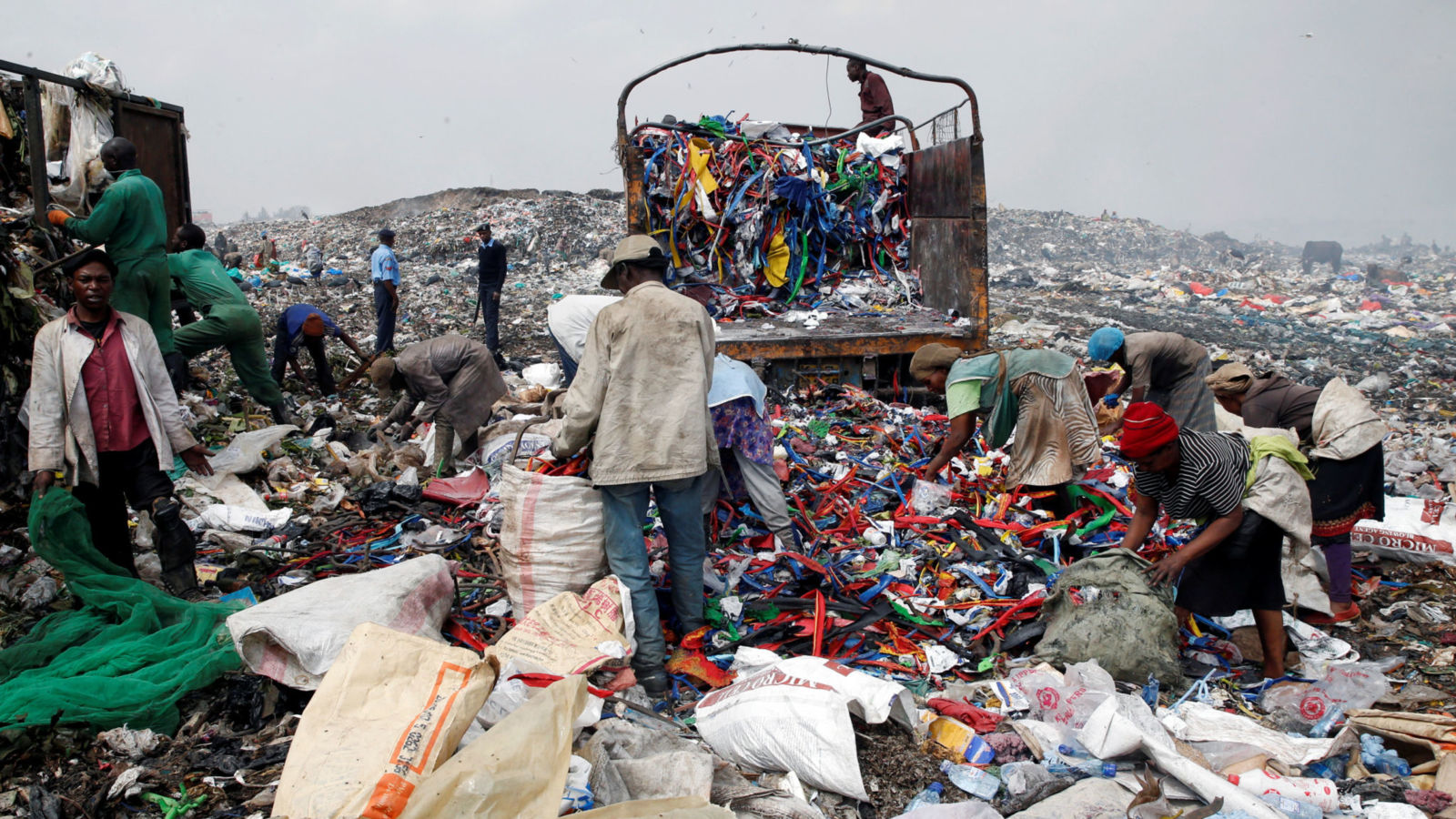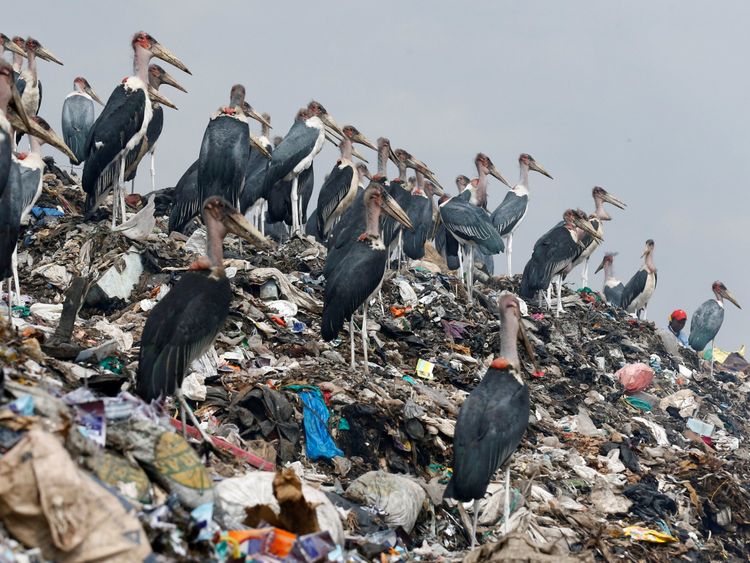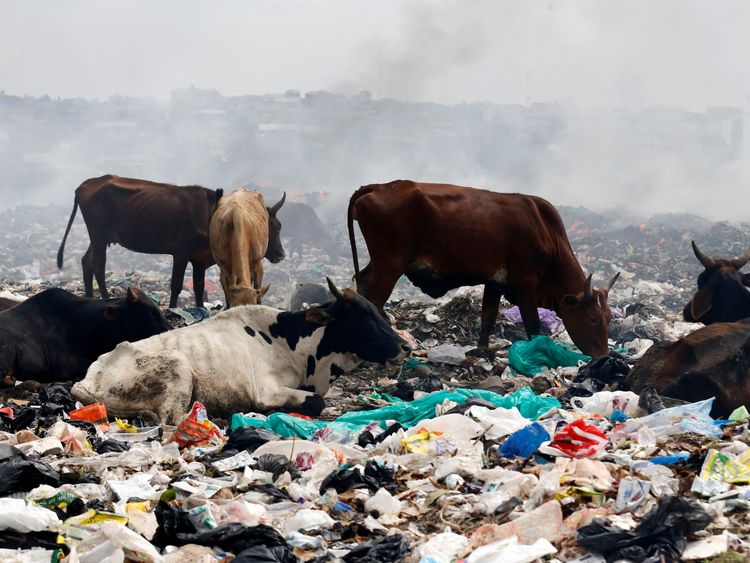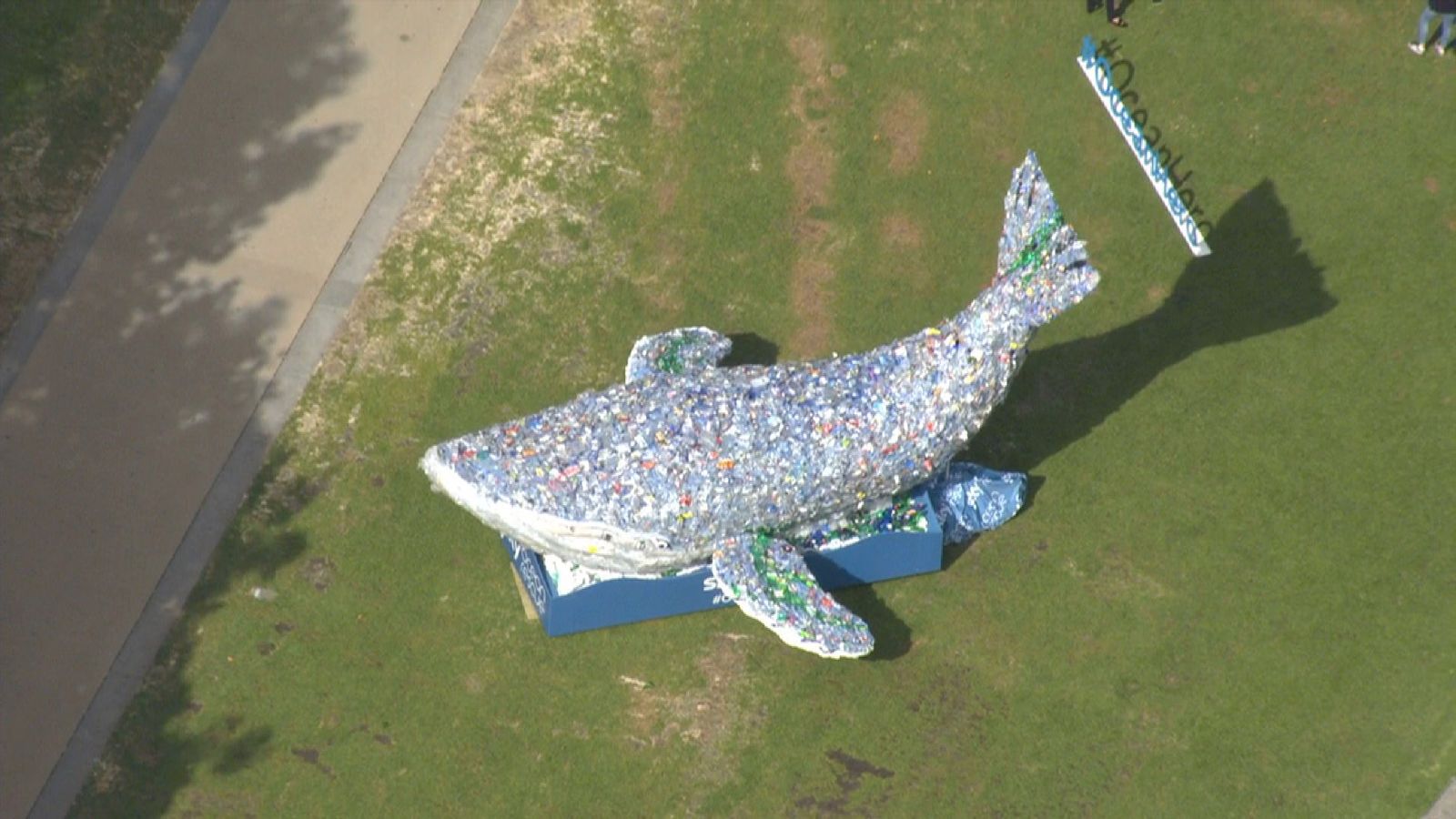Kenya has passed the world’s toughest law against plastic bags in a sharp crackdown on pollution.
Anyone now producing, selling or even using the non-degradable bags faces four years in jail or a $40,000 (£31,000) fine.
But Kenya’s environment minister Judy Wakhungu insisted manufacturers would be predominantly targeted first.
“Ordinary wananchi will not be harmed,” she said, using a Kiswahili word for “common man”.
The East African nation joins more than 40 other countries that have banned, partly banned or taxed single-use plastic bags, including China, France, Rwanda, and Italy.
Many bags drift into the ocean, strangling turtles, suffocating seabirds and filling the stomachs of dolphins and whales with waste until they die of starvation.
Pastic bags can take between 500 and 1,000 years to break down.
“If we continue like this, by 2050, we will have more plastic in the ocean than fish,” said Habib El-Habr, an expert on marine litter working with the UN Environment Programme in Kenya.
But not everyone in Kenya is a fan of the ban.
The country’s Association of Manufacturers said it would cost 60,000 jobs and force 176 manufacturers to close.
“The knock-on effects will be very severe,” a spokesman said.
“It will even affect the women who sell vegetables in the market – how will their customers carry their shopping home?”
Kenya is a major exporter of plastic bags in Africa, but big supermarket chains have started offering customers cloth bags as an alternative.















